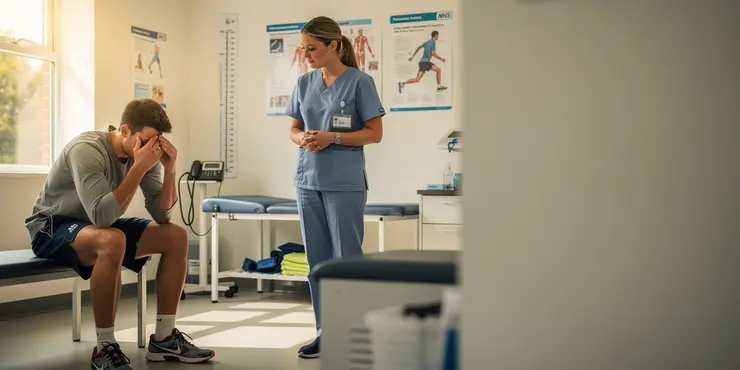
Find Help
More Items From Ergsy search
-
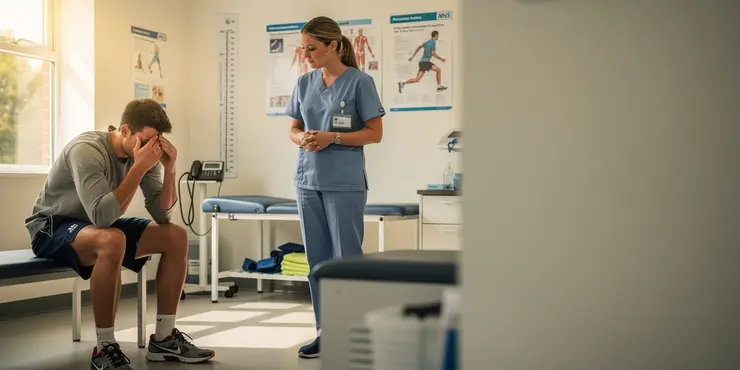
What is Concussion?
Relevance: 100%
-
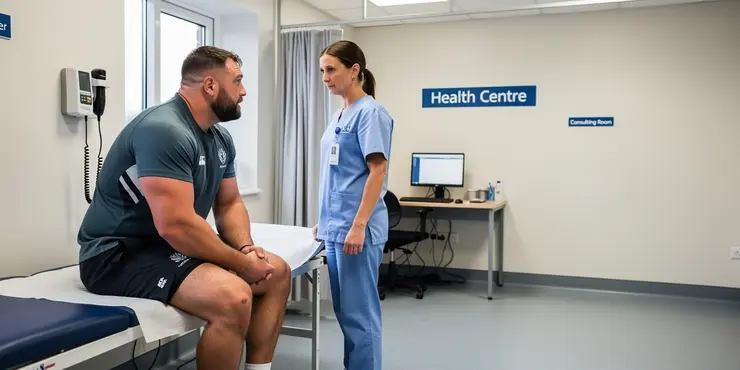
Are Concussions common in Rugby?
Relevance: 95%
-
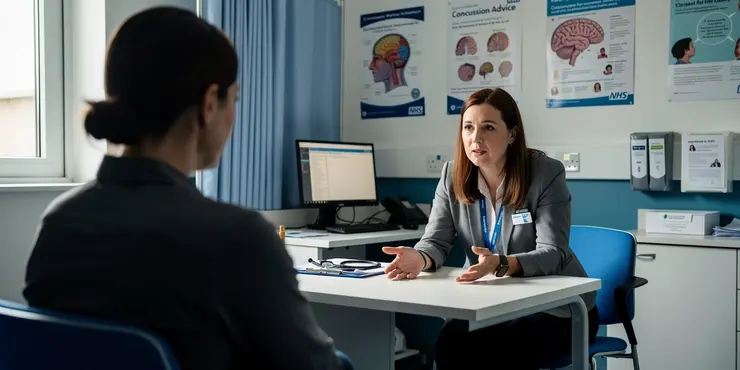
How is a concussion diagnosed?
Relevance: 94%
-
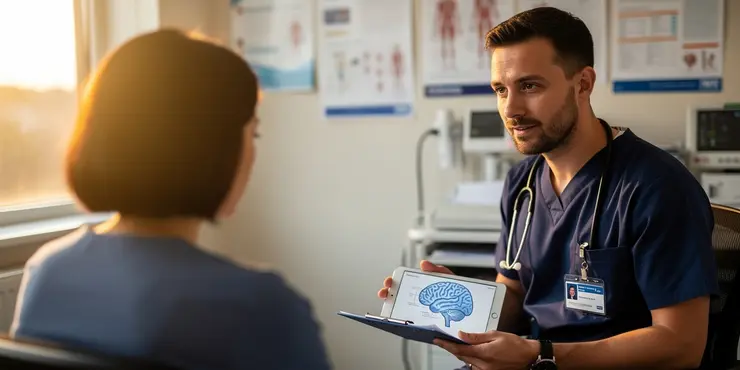
Is headache a symptom of a concussion?
Relevance: 94%
-
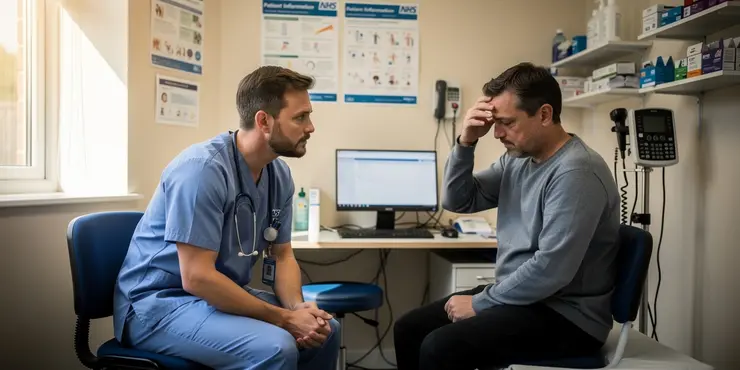
How is a concussion diagnosed?
Relevance: 94%
-
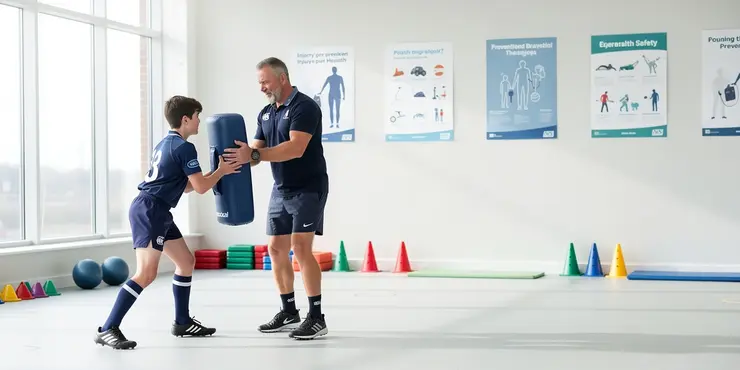
How can concussions be prevented?
Relevance: 92%
-
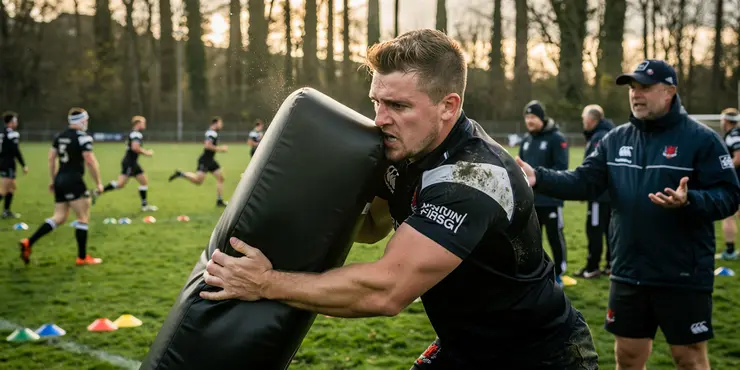
What causes concussions in rugby?
Relevance: 92%
-
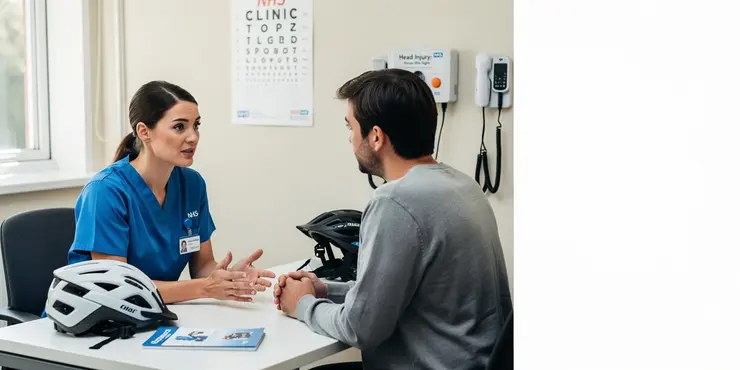
Is there any way to prevent concussions?
Relevance: 92%
-
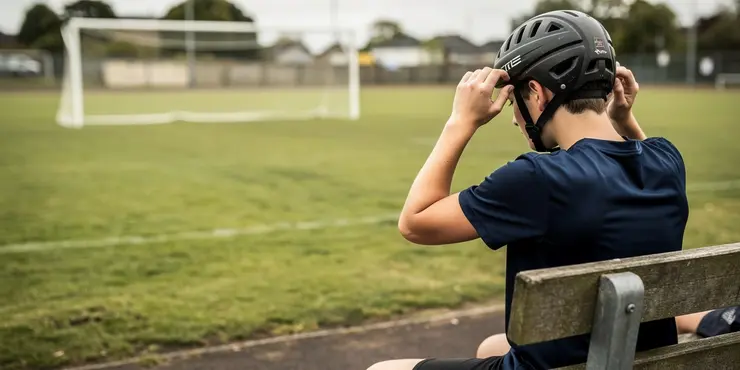
How can concussions be prevented?
Relevance: 91%
-
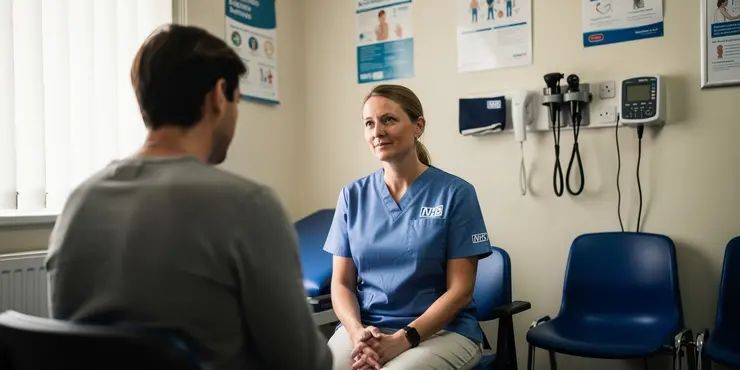
What are common symptoms of a concussion?
Relevance: 91%
-
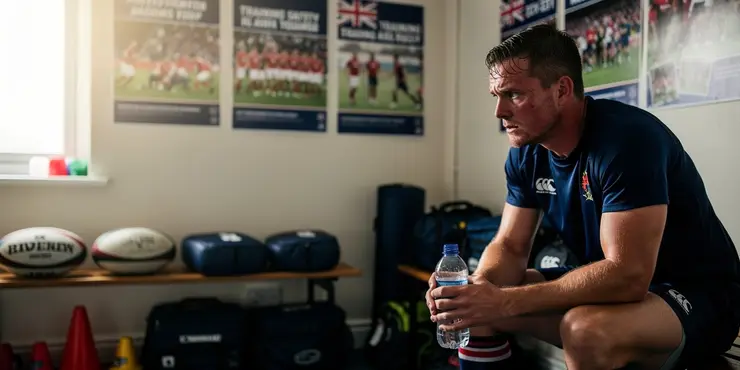
Is there a protocol for managing concussions in rugby?
Relevance: 91%
-
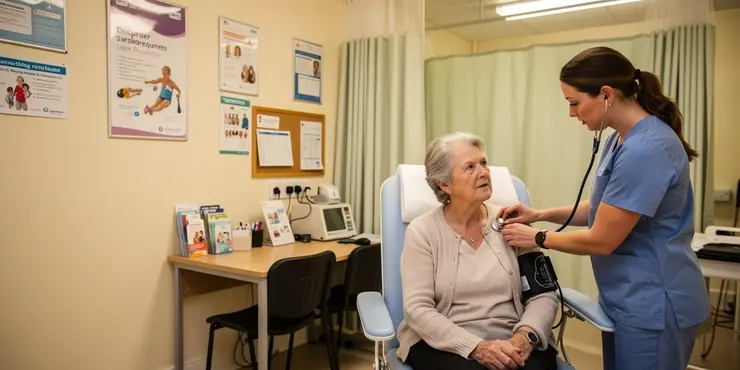
Is it safe to sleep after a concussion?
Relevance: 90%
-
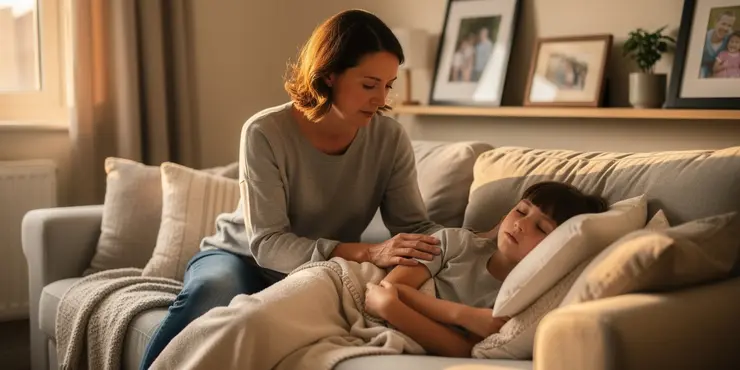
Is it safe to sleep after a concussion?
Relevance: 90%
-
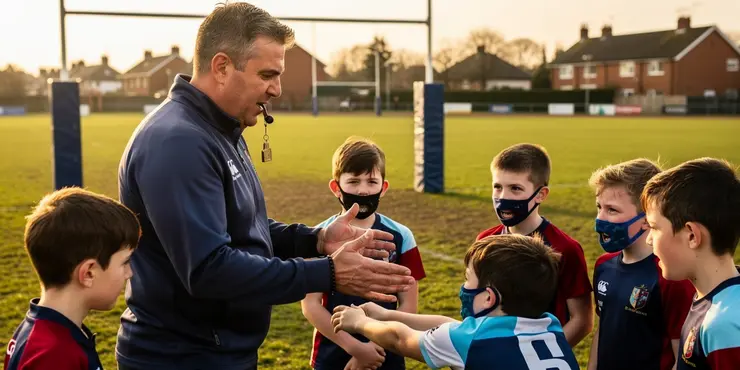
How can concussions be prevented in rugby?
Relevance: 88%
-
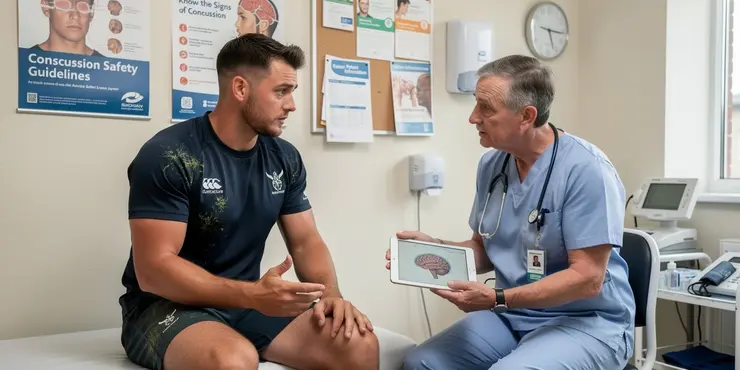
Are helmets required in rugby to prevent concussions?
Relevance: 88%
-

Can a concussion cause memory problems?
Relevance: 88%
-
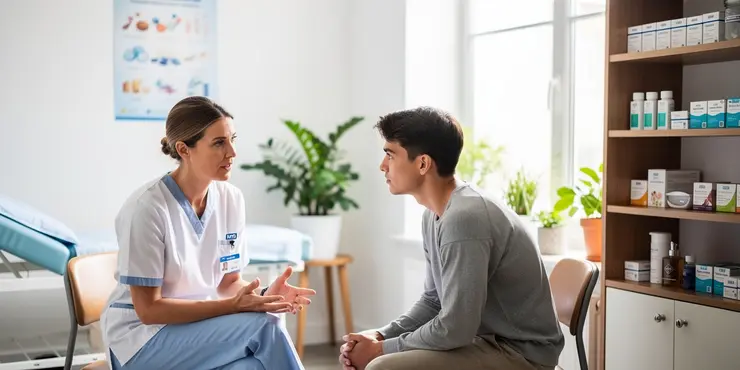
Can concussions lead to mental health issues?
Relevance: 86%
-
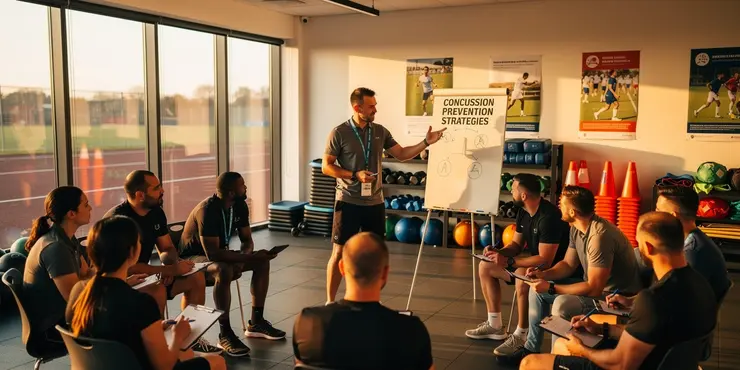
Is training available for coaches to help prevent concussions?
Relevance: 85%
-
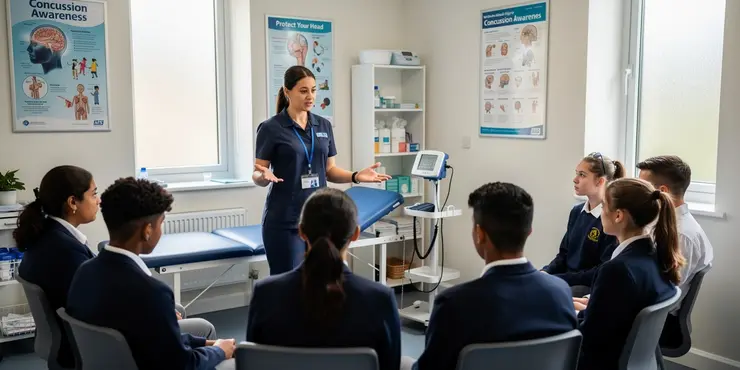
What role do schools play in managing concussions?
Relevance: 85%
-
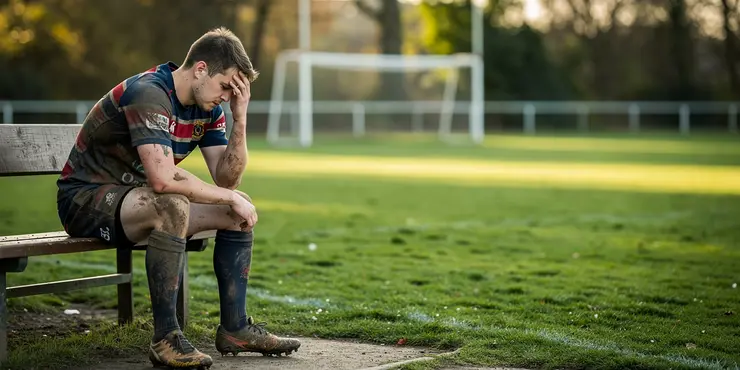
Can playing sports increase the risk of a concussion?
Relevance: 85%
-
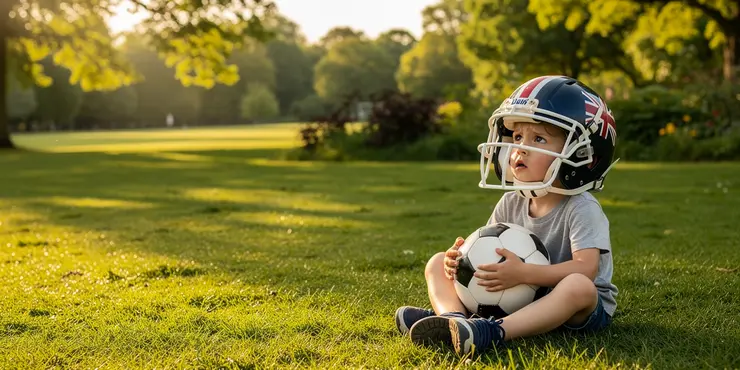
Are children more susceptible to concussions than adults?
Relevance: 85%
-
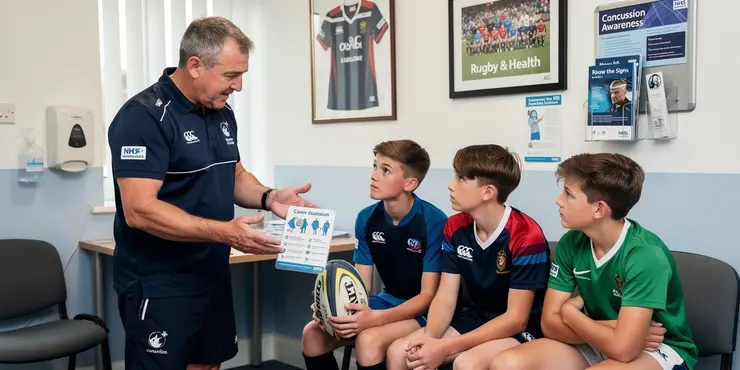
Is there a difference in concussion rates between amateur and professional rugby?
Relevance: 84%
-
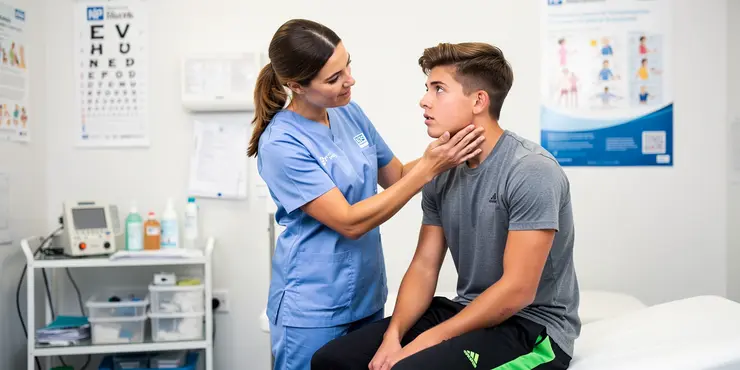
Can concussions occur without a direct blow to the head?
Relevance: 84%
-
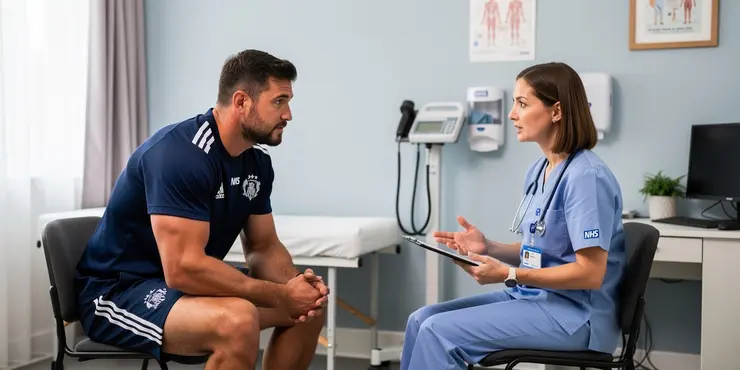
How do concussions impact long-term health in rugby players?
Relevance: 83%
-
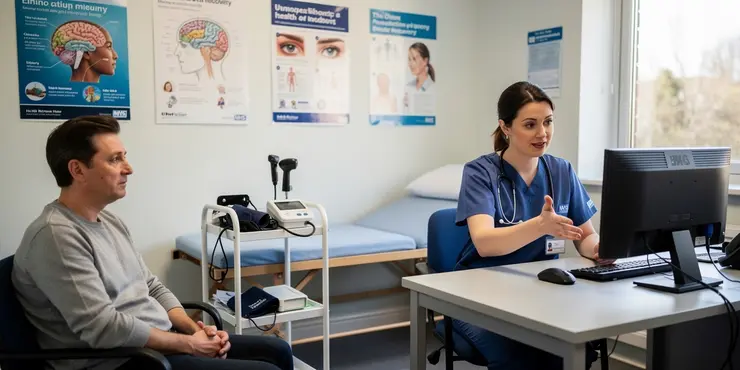
Should people with a concussion avoid screens and technology?
Relevance: 83%
-
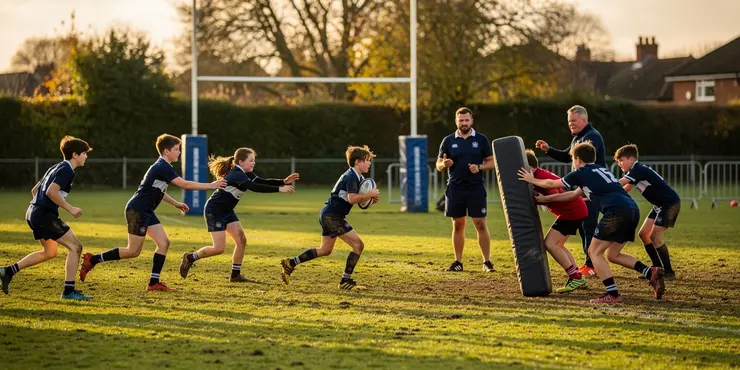
What age groups are most at risk for concussions in rugby?
Relevance: 82%
-
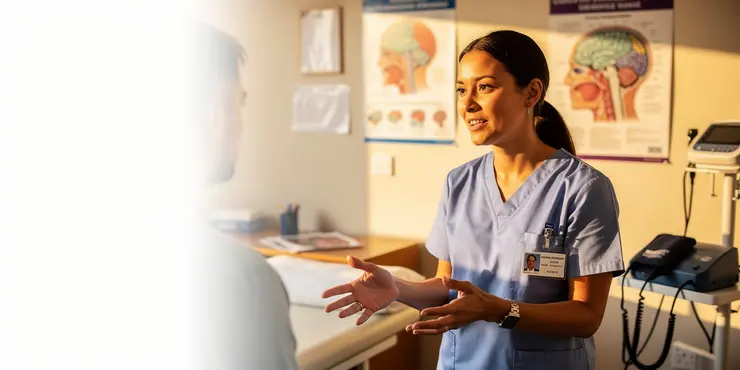
When is it safe to return to normal activities after a concussion?
Relevance: 82%
-
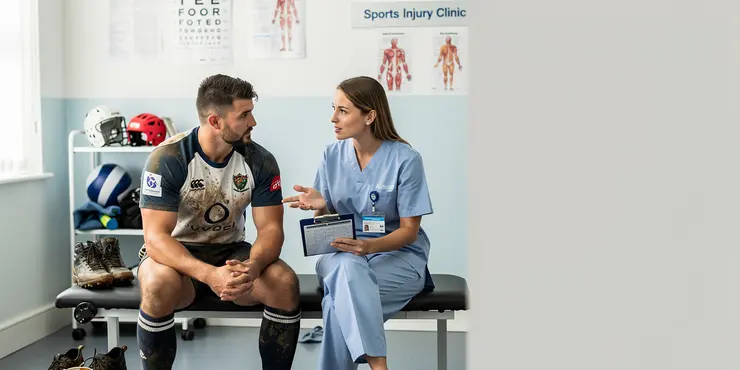
What support is available for rugby players who suffer concussions?
Relevance: 81%
-

When is it safe to return to normal activities after a concussion?
Relevance: 80%
-
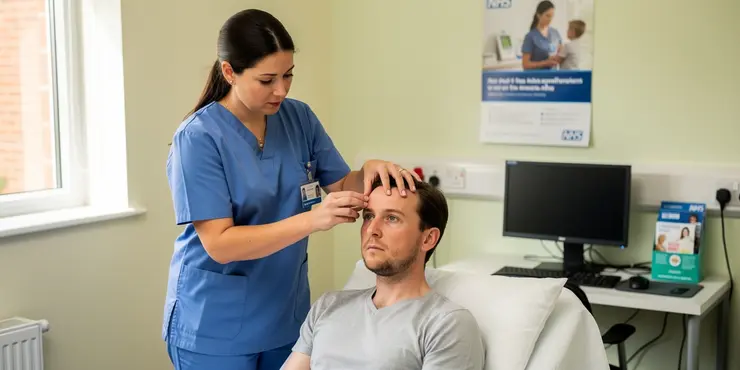
What immediate steps should be taken if someone has a concussion?
Relevance: 79%
-
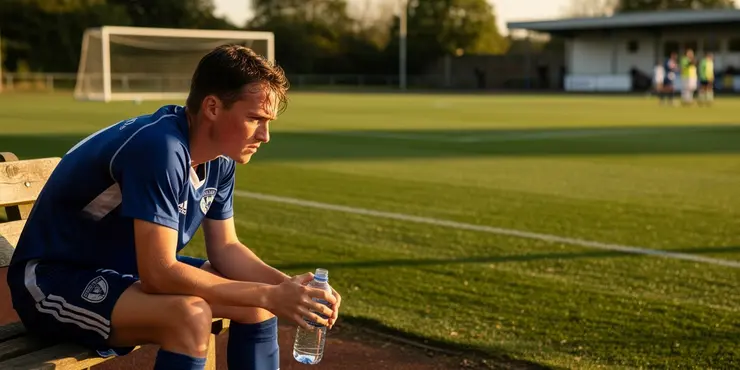
Can players return to play on the same day after a suspected concussion?
Relevance: 79%
-
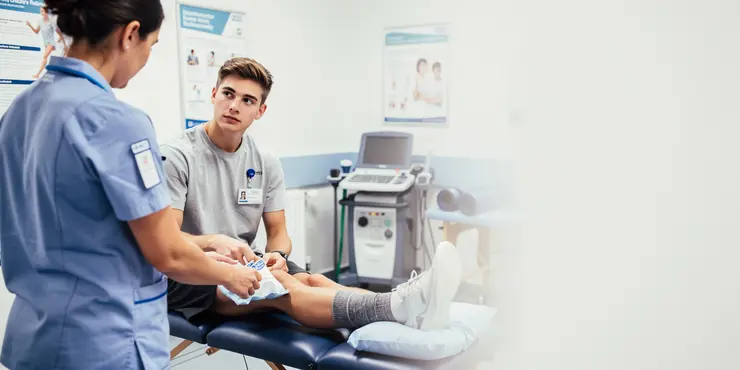
Advice on sports injuries
Relevance: 30%
-
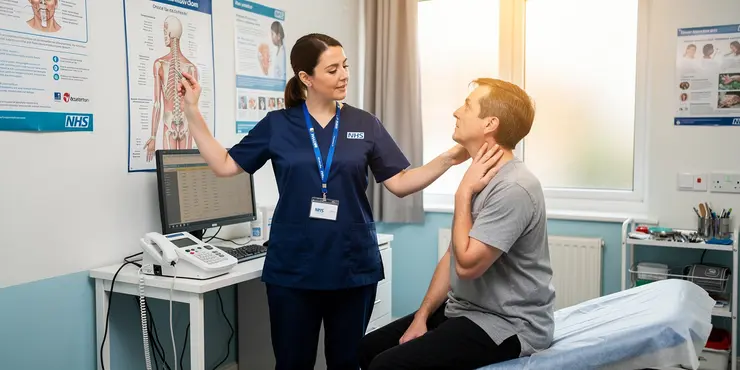
What are the symptoms of whiplash?
Relevance: 13%
-
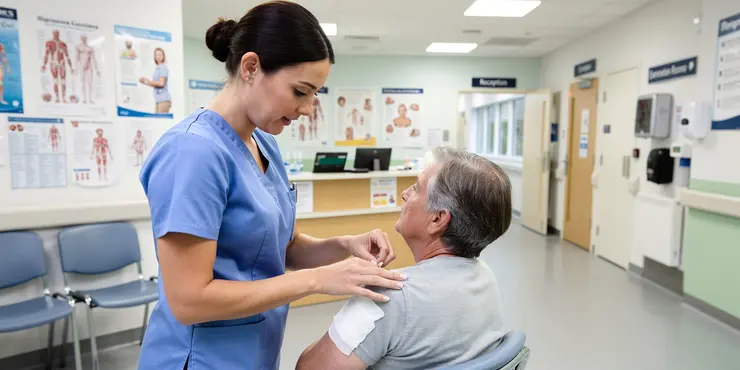
Can first aid skills help in daily life?
Relevance: 6%
What is Concussion?
A concussion is a type of traumatic brain injury (TBI) caused by a bump, blow, or jolt to the head that causes the brain to move rapidly back and forth. This sudden movement can lead to chemical changes in the brain and sometimes stretching or damaging brain cells. Concussions are common injuries, particularly in sports and recreational activities, and they can affect individuals of all ages.
Causes of Concussion
Concussions are primarily caused by a direct impact to the head, although any forceful action that results in a quick movement of the brain within the skull can result in a concussion. Common causes include falls, car accidents, and sports injuries. In the UK, certain sports such as rugby, football, and cycling are more likely to expose participants to concussions compared to others.
Symptoms of Concussion
The symptoms of a concussion can vary widely and may appear immediately after the injury or evolve over several hours or days. Typical symptoms include headache, confusion, dizziness, nausea, and temporary loss of consciousness. Other signs might be difficulty concentrating, memory problems, balance disturbances, and sensitivity to light or noise. It's essential for anyone experiencing these symptoms after a head injury to seek medical attention.
Treatment and Recovery
Treatment for a concussion largely involves rest and avoiding activities that could exacerbate symptoms or risk a second injury. Most people recover fully with appropriate care, though some might experience post-concussion symptoms lasting for weeks or longer. It's critical to follow medical advice during recovery and gradually return to normal activities under guidance. In the UK, protocols for sports-related concussions are well-established to ensure safe return-to-play measures.
Prevention of Concussions
While not all concussions can be prevented, measures can be taken to reduce the risk. Wearing appropriate protective gear, like helmets, and adhering to safety guidelines in sports are crucial steps. Educating participants, coaches, and parents about concussion signs and encouraging a culture that prioritizes health over performance helps mitigate risks. In the UK, increasing awareness in schools and sports organisations is pivotal in promoting best practices for concussion management and prevention.
Understanding Concussion
Concussions are a type of traumatic brain injury that result from a sudden impact or jolt to the head or body, affecting brain function. While typically associated with sports injuries, concussions can occur from falls, car accidents, or any situation where the brain is rapidly moved inside the skull.
Causes of Concussion
Concussions are caused by direct or indirect impacts that cause the brain to rapidly shift or twist inside the skull. In the United Kingdom, common scenarios include sports-related incidents, particularly in contact sports such as rugby, football, and boxing, as well as road traffic accidents, and falls at home or work.
Symptoms of Concussion
The symptoms of a concussion can vary, but often include headaches, dizziness, confusion, memory problems, and nausea. It is important for individuals to monitor for symptoms immediately after an injury and in the days following, as symptoms may not be immediate. Loss of consciousness may occur, but it is not necessary for a concussion diagnosis.
Diagnosis and Treatment
In the UK, concussions are typically diagnosed based on a medical history and a neurological exam. Imaging tests like CT or MRI scans are used only when there is concern about a more severe brain injury. Treatment focuses on physical and cognitive rest, allowing the brain time to recover. This includes avoiding activities that require concentration and refraining from physical exertion.
Prevention and Management
Preventative measures are crucial in reducing the risk of concussion. These include wearing appropriate headgear during sports, using seat belts in vehicles, and ensuring home safety to prevent falls. Recognition, immediate response, and gradual return to activity protocols are part of effective management in UK sports and educational settings.
When to Seek Medical Attention
It is essential to seek immediate medical attention if severe symptoms develop, such as repeated vomiting, seizures, or significant confusion. The NHS advises individuals to be vigilant post-injury and consult healthcare professionals if concerns about head injuries arise.
Conclusion
Understanding concussions is vital for minimizing risks and ensuring appropriate care and recovery. Increased awareness and proactive measures across sports, work, and daily activities can significantly reduce the impact of this prevalent brain injury.
What is Concussion?
A concussion is a kind of brain injury. It happens when you get hit on the head and your brain moves quickly inside your skull. This movement can make your brain feel different and sometimes hurt the brain cells. Concussions happen a lot in sports and play, and anyone can get them, no matter how old they are.
Causes of Concussion
Concussions usually happen when you get hit in the head. They can also happen if you move your head very fast and the brain bounces around inside. Common reasons are falling, car crashes, and getting hurt when playing sports. In the UK, sports like rugby, football, and cycling can sometimes cause concussions.
Symptoms of Concussion
Signs of a concussion can be different for everyone. They can show up right after you get hurt or come a bit later. Some signs are a headache, feeling confused, being dizzy, feeling sick to your stomach, or passing out. You might also have trouble thinking, remembering, keeping your balance, or dislike bright lights and loud sounds. If you notice these signs after hitting your head, it is important to see a doctor.
Treatment and Recovery
To get better from a concussion, you usually need to rest and not do things that might make you worse. Most people get better completely if they take care, but some might take longer to feel okay. It's important to listen to doctors and go back to normal slowly and safely. In the UK, sports have special rules to help players return safely after a concussion.
Prevention of Concussions
We can't stop all concussions, but we can try to avoid them. Wearing helmets and being careful when playing sports can help. It's also good to teach players, coaches, and parents about concussion signs and to focus on being safe. In UK schools and sports, learning about concussions helps keep everyone safe.
Frequently Asked Questions
What is a concussion?
A concussion is a type of brain injury caused by a bump, blow, or jolt to the head that can alter the way your brain functions.
What are common symptoms of a concussion?
Common symptoms include headache, confusion, dizziness, nausea, sensitivity to light or noise, and difficulty concentrating.
How long do concussion symptoms last?
Symptoms can last for a few days to several weeks, and in some cases, longer. It's important to rest and gradually return to normal activities.
When should I see a doctor for a concussion?
You should see a doctor if you experience severe symptoms like repeated vomiting, loss of consciousness, worsening headaches, or significant difficulties in concentration.
Can concussions have long-term effects?
Yes, repeated concussions can lead to long-term complications, such as chronic traumatic encephalopathy (CTE) or persistent post-concussion symptoms.
How is a concussion diagnosed?
A concussion is diagnosed through a combination of reviewing the symptoms, a physical examination, and sometimes imaging tests like CT scans or MRIs.
What is the best treatment for a concussion?
The primary treatment is rest, both physically and mentally, and avoiding activities that could cause another concussion.
Is it safe to sleep after a concussion?
Yes, it is generally safe to sleep after a concussion. In the past, monitoring by waking someone up frequently was recommended, but rest is now considered beneficial.
How can concussions be prevented?
Wearing appropriate protective gear during sports, making homes safer to prevent falls, and following safety rules can help prevent concussions.
Are children more susceptible to concussions than adults?
Yes, children and teenagers are more susceptible to concussions and typically take longer to recover than adults.
What is a baseline concussion test?
A baseline concussion test measures normal brain function before any injury occurs, providing a comparison if a concussion is suspected later.
Can concussions occur without a direct blow to the head?
Yes, concussions can also be caused by whiplash or any impact that causes the brain to move rapidly back and forth inside the skull.
What role do schools play in managing concussions?
Schools should have policies in place to accommodate students recovering from concussions by allowing for rest, breaks, and a gradual return to full academic participation.
Can concussions lead to mental health issues?
Concussions can increase the risk of mental health issues such as depression and anxiety, especially if symptoms persist.
Should people with a concussion avoid screens and technology?
It is generally recommended to limit screen time after a concussion, as screens can exacerbate symptoms like headaches and light sensitivity.
What is a concussion?
A concussion is a mild traumatic brain injury caused by a bump, blow, or jolt to the head or body that causes the brain to move rapidly within the skull, leading to temporary disruption of normal brain function.
What are common symptoms of a concussion?
Common symptoms include headache, confusion, dizziness, nausea, balance problems, sensitivity to light or noise, and changes in sleep patterns.
How long do concussion symptoms last?
Symptoms can last from a few days to several weeks or even longer. Recovery varies by individual, but most people recover fully within a month.
Should I see a doctor if I suspect a concussion?
Yes, it's important to seek medical advice if you suspect a concussion. A healthcare professional can assess the severity and recommend appropriate care.
Can you have a concussion without losing consciousness?
Yes, most concussions occur without loss of consciousness. It's important to recognise other symptoms even if the person remains conscious.
What immediate steps should be taken if someone has a concussion?
Ensure the person stops the activity immediately, monitor them closely, and seek medical attention. Avoid alcohol and other substances that can affect the brain.
Are children more susceptible to concussions?
Children and teenagers are particularly vulnerable due to their developing brains and may take longer to recover from a concussion.
Can playing sports increase the risk of a concussion?
Yes, contact sports like rugby, football, and boxing have higher risks of concussions. Proper protective gear and adherence to safety rules can help mitigate risks.
What is the recommended treatment for a concussion?
Rest is the primary treatment for a concussion, including physical and mental rest. Gradual return to normal activities should only occur once symptoms have fully resolved.
How does a concussion affect cognitive function?
A concussion can temporarily impair memory, attention, decision-making, and other cognitive functions, making it important to rest both the body and the brain.
Is it safe to sleep after a concussion?
Sleeping after a concussion is safe if the person is awake, stable, and showing no signs of a severe brain injury. It's crucial to follow a doctor's advice in such cases.
Can previous concussions affect future brain health?
Repeated concussions may increase the risk of longer-term cognitive difficulties and other neurological conditions. It's important to manage and prevent future head injuries.
Is there any way to prevent concussions?
Wearing appropriate protective gear, practicing safe play techniques in sports, and creating a safe living environment can help reduce the risk of concussions.
How is a concussion diagnosed?
Doctors diagnose concussions through physical examinations, review of symptoms, cognitive tests, and sometimes imaging tests like MRI or CT scans to rule out more serious injuries.
When is it safe to return to normal activities after a concussion?
It's important to wait until all symptoms have resolved and a healthcare professional has given clearance before gradually returning to normal activities, including work, school, or sports.
What is a concussion?
A concussion is a type of head injury. It happens when you get hit on the head. Your brain moves inside your skull, which can make you feel dizzy or confused.
If you think you have a concussion, it is important to tell an adult and see a doctor.
To help understand more, you can use pictures or talk to someone who knows a lot about concussions.
A concussion is a type of brain hurt. It happens when something hits your head really hard. This can change how your brain works.
What happens when you have a concussion?
A concussion is like a bump to your head. It can make you feel different.
Here are some things that might happen:
- Your head hurts.
- You feel dizzy or like you might fall.
- You might have trouble seeing clearly.
- It's hard to remember things.
- You feel very tired.
- You might get upset easily.
If you think you have a concussion, it is important to tell an adult.
Helpful tools:
- Ask someone to remind you of some daily activities.
- Rest and sleep can help you feel better.
Here are some common signs to look out for:
- Your head might hurt.
- You might feel confused or mixed up.
- You could feel dizzy, like the room is spinning.
- Your tummy might feel upset or sick.
- Bright lights or loud noises might bother you.
- It might be hard to pay attention or think clearly.
If you notice any of these signs, try taking deep breaths, find a quiet place to rest, or use noise-canceling headphones. It can also help to talk to someone you trust about how you feel. Always ask an adult for help if you need it.
How long do concussion symptoms last?
A concussion is when your brain gets a little bump and feels bad. It can make your head hurt, or you might feel dizzy.
Most people start to feel better after a few days. But some people can feel bad for weeks.
If you still feel bad after a week, it is good to see a doctor.
Rest is very helpful. This means lying down and not doing much.
Tell someone you trust how you feel. They can help you get better.
Feeling unwell can last a few days or a few weeks. Sometimes, it can be longer. Resting is important. Take your time getting back to doing your normal things.
When should I go to the doctor for a bump on the head?
You should go to the doctor if you have serious problems like throwing up a lot, fainting, really bad headaches, or trouble paying attention.
Can a bump on the head cause problems later?
If you hit your head hard, it can cause a concussion. This often happens in sports or accidents.
A concussion is a type of injury to the brain. It can make you feel dizzy or confused.
Usually, people get better after a concussion. But sometimes, problems can last for a long time.
If you have trouble after a concussion, talk to a doctor. They can help you feel better.
Using pictures or videos can help you understand more about concussions.
Yes, getting hit on the head many times can cause problems that last a long time. It can make the brain get sick or keep feeling bad.
How do doctors find out if someone has a concussion?
Doctors do special checks to see if someone has a concussion. They ask how the person got hurt and listen to how they feel.
Doctors might ask questions to test how well someone can remember things or pay attention.
Sometimes, doctors do tests like scans to look at the brain.
If you think you have a concussion, tell an adult and see a doctor. It's important to get help.
Tools like drawing pictures or using apps can help people understand this better.
A concussion is checked by looking at the symptoms, doing a physical check-up, and sometimes using pictures of the brain like CT scans or MRIs.
How can you help someone with a concussion?
If someone hurts their head, they might have a concussion. Here are some simple steps to help:
- Rest: Make sure they get plenty of sleep and do not run around or play sports.
- Quiet activities: Encourage them to read or do puzzles instead of watching TV or using a computer.
- Visit a doctor: A doctor can say what to do to help them get better.
- Ask for help: Talk to teachers or family if you need support.
If they feel dizzy or confused, it's important to tell an adult. Taking it easy helps the brain heal.
The main way to feel better is to rest. This means resting your body and your mind. Try not to do things that might cause another bump to the head.
Is it okay to sleep after you hit your head?
Yes, it is usually safe to sleep after you hit your head and get a concussion. A long time ago, people thought you should wake up a lot to be safe. Now, resting and sleeping is seen as helpful. If you're worried, ask a doctor for advice.
How can we stop concussions?
When you play sports, you should wear the right safety gear. At home, make things safer so you don't fall. Follow safety rules. This can help stop head injuries.
Do kids get concussions more easily than grown-ups?
Yes, kids and teenagers are more likely to get hurt in the head. It takes them longer to feel better than grown-ups.
What is a baseline concussion test?
A baseline concussion test is a test done before any head injury happens. It measures how your brain works when you are healthy. If you hit your head later, doctors use this test to see if your brain has changed. This helps them know if you have a concussion.
Here are some tools and tips to help understand:
- Pictures: Use simple pictures to show how the test works.
- Short Sentences: Break information into small, easy sentences.
- Support Person: Ask a family member or friend to help explain.
A baseline concussion test checks how your brain works before it gets hurt. This way, if you hit your head later and feel funny, doctors can compare the new test to see what's different.
Can you get a concussion without hitting your head?
Yes, getting a concussion can happen if your head moves very quickly back and forth. This can happen if your head gets bumped or if your neck snaps forward and backward, like with whiplash.
What do schools do to help with head injuries?
Schools should have rules to help kids get better after a concussion. These rules should let kids take rests and breaks. They should also let kids come back to school slowly and do more and more work over time.
Can bumps on the head cause mental health problems?
When people get a hard bump on the head, called a concussion, it can sometimes hurt the brain. This might make them feel sad, worried, or have trouble thinking clearly.
If you or someone you know has had a concussion, it is a good idea to talk to a doctor. They can help and give advice.
Using pictures, simple words, and asking for help can make things easier to understand.
When you hit your head, you might get a concussion. This can make you feel sad or worried. If you keep feeling this way, talk to someone who can help, like a doctor.
Should people with a concussion stay away from screens and technology?
If someone hurts their head and gets a concussion, it might be best for them to stay off phones, computers, and TVs. Too much screen time can make their head hurt more.
Doctors say resting your eyes can help the brain heal. This means taking breaks and not using screens too much. Listening to music or audiobooks can be a good way to relax instead.
If you have questions, talk to a doctor or a nurse. They can give the best advice. Always ask for help if you need it.
After you hurt your head, it's a good idea to watch less TV, play fewer video games, or use your computer or phone less. These can make your head hurt more and make you sensitive to light.
Useful Links
This website offers general information and is not a substitute for professional advice.
Always seek guidance from qualified professionals.
If you have any medical concerns or need urgent help, contact a healthcare professional or emergency services immediately.
Some of this content was generated with AI assistance. We’ve done our best to keep it accurate, helpful, and human-friendly.
- Ergsy carfully checks the information in the videos we provide here.
- Videos shown by Youtube after a video has completed, have NOT been reviewed by ERGSY.
- To view, click the arrow in centre of video.
- Most of the videos you find here will have subtitles and/or closed captions available.
- You may need to turn these on, and choose your preferred language.
- Go to the video you'd like to watch.
- If closed captions (CC) are available, settings will be visible on the bottom right of the video player.
- To turn on Captions, click settings .
- To turn off Captions, click settings again.
More Items From Ergsy search
-

What is Concussion?
Relevance: 100%
-

Are Concussions common in Rugby?
Relevance: 95%
-

How is a concussion diagnosed?
Relevance: 94%
-

Is headache a symptom of a concussion?
Relevance: 94%
-

How is a concussion diagnosed?
Relevance: 94%
-

How can concussions be prevented?
Relevance: 92%
-

What causes concussions in rugby?
Relevance: 92%
-

Is there any way to prevent concussions?
Relevance: 92%
-

How can concussions be prevented?
Relevance: 91%
-

What are common symptoms of a concussion?
Relevance: 91%
-

Is there a protocol for managing concussions in rugby?
Relevance: 91%
-

Is it safe to sleep after a concussion?
Relevance: 90%
-

Is it safe to sleep after a concussion?
Relevance: 90%
-

How can concussions be prevented in rugby?
Relevance: 88%
-

Are helmets required in rugby to prevent concussions?
Relevance: 88%
-

Can a concussion cause memory problems?
Relevance: 88%
-

Can concussions lead to mental health issues?
Relevance: 86%
-

Is training available for coaches to help prevent concussions?
Relevance: 85%
-

What role do schools play in managing concussions?
Relevance: 85%
-

Can playing sports increase the risk of a concussion?
Relevance: 85%
-

Are children more susceptible to concussions than adults?
Relevance: 85%
-

Is there a difference in concussion rates between amateur and professional rugby?
Relevance: 84%
-

Can concussions occur without a direct blow to the head?
Relevance: 84%
-

How do concussions impact long-term health in rugby players?
Relevance: 83%
-

Should people with a concussion avoid screens and technology?
Relevance: 83%
-

What age groups are most at risk for concussions in rugby?
Relevance: 82%
-

When is it safe to return to normal activities after a concussion?
Relevance: 82%
-

What support is available for rugby players who suffer concussions?
Relevance: 81%
-

When is it safe to return to normal activities after a concussion?
Relevance: 80%
-

What immediate steps should be taken if someone has a concussion?
Relevance: 79%
-

Can players return to play on the same day after a suspected concussion?
Relevance: 79%
-

Advice on sports injuries
Relevance: 30%
-

What are the symptoms of whiplash?
Relevance: 13%
-

Can first aid skills help in daily life?
Relevance: 6%


